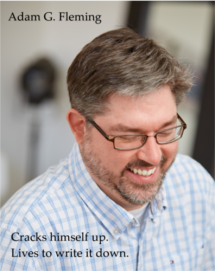In #3 I talked about the need for redundancy in your intentional community.
Intentional community (lower-case “i” and “c”) is defined for the sake of this series as a systematic approach to making sure that you have developed a series of relationships which form a support network for your life– and vice versa, it includes relationships in which you provide support for others.
Diversity. We compartmentalize our lives a lot. We can fight that, to some extent, but the reality is that we do have different spheres we operate in, sometimes they are completely separate from each other.
Part of establishing good redundancy is establishing relationships for diversity in your own life, making sure that you have people who are working with you in every area. For example, in my life I need people who check in with me on spiritual growth; growth as a writer and blogger; growth as a leadership coach; growth as a father and husband; growth as a nonprofit executive and leader, including growth as a fundraiser; and more. If I tuck one of these areas aside and don’t spend time working on it with one of my coaches, mentors, leaders, etc. then I’m at risk for failure in a certain area.
This is why I check in regularly with Keisa, Mark, Mark, Tim, Justin, Jonathan, Ralph, and more. It may seem like it would take a lot of time for me to meet with two or three of these people every month– that’s because it does! But that is a component of intentional community too. This will take some time. Each one brings a slightly different perspective and is relating with me on a different focus. Some are broader, working at all of life, while some are more narrowly focused. Some are peers, and some are people who’ve worked in a specific area better or longer than I have.
Finally, to be well balanced, you need to provide the same for others. Giving this way is a beautiful thing! Find people you can mentor, lead, coach, or otherwise invest in relationally.
